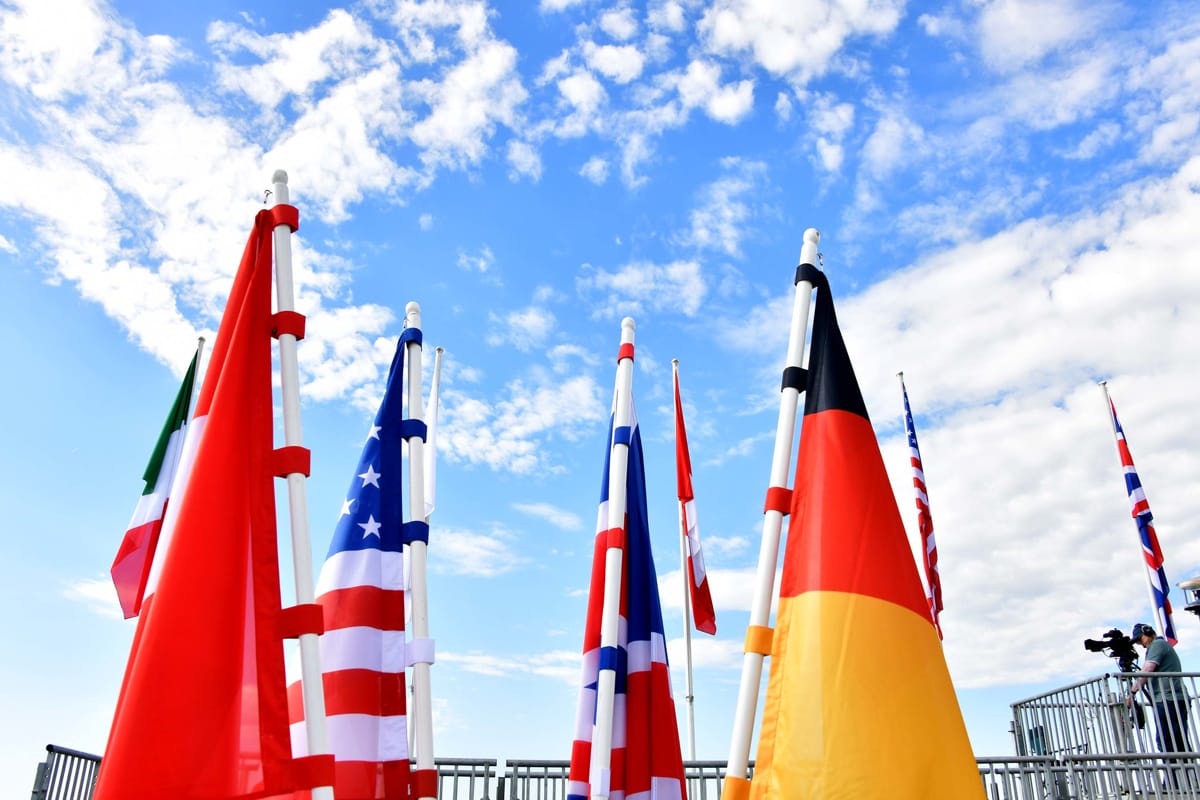Many Western governments consider Beijing’s frequent use of economic sanctions a “clear and present danger” to the global economy which erodes the rules-based order. Canberra agrees, and has joined a growing chorus of calls for states to push back.
Such calls may soon be translated into action, as the G-7 countries have agreed to establish a mechanism for collectively responding to economic coercion at their annual summit this month.
Following a recent invitation, Australia will have a seat at the table. How might it seek to shape the conversation?
There is no shortage of opinion on how an anti-coercion system might work, but one especially popular proposal is to fight fire with fire: to deter Beijing, many advocate collectively fighting back with retaliatory trade measures whenever China sanctions.
Proponents include serious scholars and commentators. A new Lowy Institute report by Justin Brown, a former senior official with Australia’s Department of Foreign Affairs and Trade, also sees potential in retaliation.
While perhaps tempting, there are reasons to doubt collective retaliation would achieve its intended effect. Indeed, it may even backfire. When Australia and its G-7 partners meet this month, they would be wiser to focus their efforts on playing better defence, not offence.
To deter China with retaliatory threats, a coalition must credibly convince Beijing that retaliation will occur, and that its costs would outweigh the benefit of using sanctions. That’s a big ask.
As retaliation advocates concede, any collective response must “pack a punch”. Unfortunately, sanctions cut both ways – to maximise costs on China, coalition countries will have to absorb significant costs of their own.
For example, commentators sometimes note China’s dependence on Australian supply for over half its iron ore imports as one potential source of leverage. But the producers of Australia’s most lucrative export overwhelmingly rely on Chinese demand too. It is fanciful to imagine Canberra agreeing to endure the costs of banning this trade in response to “classic” Chinese sanctions, such as bans on Taiwanese sugar apples or Filipino bananas.
Add to that that costs are unlikely to be spread evenly across coalition members, and it is easy to envisage reluctance and fractures emerging among them, especially if a government called upon to restrict trade with China has doubts about the policies of the state that triggered Beijing’s sanctions in the first place.
In 2021, for example, several EU members dragged their heels on supporting Lithuania when it faced sanctions after opening a “Taiwanese Representative Office”, which some deemed an unnecessary affront to Beijing. If rifts emerged in the European Union, they are certainly likely in a potentially large bloc of dispersed countries with divergent interests and less practice cooperating.
Things will be complicated further if Beijing applies pressure on specific countries to break resolve one-by-one. A microcosm of this strategy was witnessed recently when Beijing’s foreign minister Qin Gang attempted to dissuade Tokyo from participating in Washington’s chip export restriction initiative. In the semiconductor space, Japan represents a strong link in a small chain (alongside the United States and Netherlands). However, some anti-coercion proposals include up to 16 states – a much longer chain, in which weak links could be hammered.

The prospects of failing unity will fundamentally diminish the credibility of any threats, and risk dividing, rather than unifying, coalition members. Do China’s sanctions warrant the construction of a costly and potentially risky retaliation instrument?
So far, there is little evidence China’s coercion has generated meaningful political concessions. Key targets, such as South Korea, Australia and Lithuania, have not reversed policies that landed them in Beijing’s bad books. Nor is it clear that third parties have been deterred from crossing Beijing after witnessing it punish other countries.
Why? One explanation is the relatively limited economic impacts of China’s sanctions. Firms in sanctioned industries do not sit still – they autonomously adjust, and often very effectively due to flexible markets in the open, multilateral trading system. Australia knows this well. In situations where market structure makes adjustment less viable, governments can also provide financial support that can dampen industry pressure to appease China.
In this lie the kernels of an alternative strategy for deterrence: convincing Beijing its sanctions are unlikely to work. Contrary to claims that a “successful defence … requires a good offense”, a good defence alone can be sufficient if it denies a coercer any prospects of success.
Instead of spending scarce G-7 time debating retaliation, policymakers should focus their efforts on crafting mechanisms that complement neutralizing the economic – and hence political – consequences of China’s sanctions.
This should be done in a way that defends and extends open, rules-based market exchange, and may, for example, include creating a voluntary burden-sharing system and other instruments to help sanctioned states mitigate disruption and support domestic firms absorb adjustment costs. Members should also devise ways to support the development of a robust political risk insurance market for sanction-affected firms.
For such initiatives to work, an especially urgent task is drawing up clear criteria for when economic coercion will be said to have occurred. As China’s ambassador to Japan Wu Jianghao ironically emphasised in an op-ed last month, “China does not … announce sanctions against other countries”. Instead, it typically imposes them discreetly via informal means that afford scope to deny restrictions are politically motivated or in place at all – complicating ascertaining the existence of coercive measures.
Sticking the “coercion” label to Chinese actions and triggering defensive countermeasures may ultimately require political decisions. But to the greatest extent possible, policymakers should try to develop consistent and objective standards for this procedure. To proceed otherwise would be contrary to core principles (such as transparency and non-discrimination) of the rules-based order that Australia and its G-7 partners are setting out to defend in the first place.

